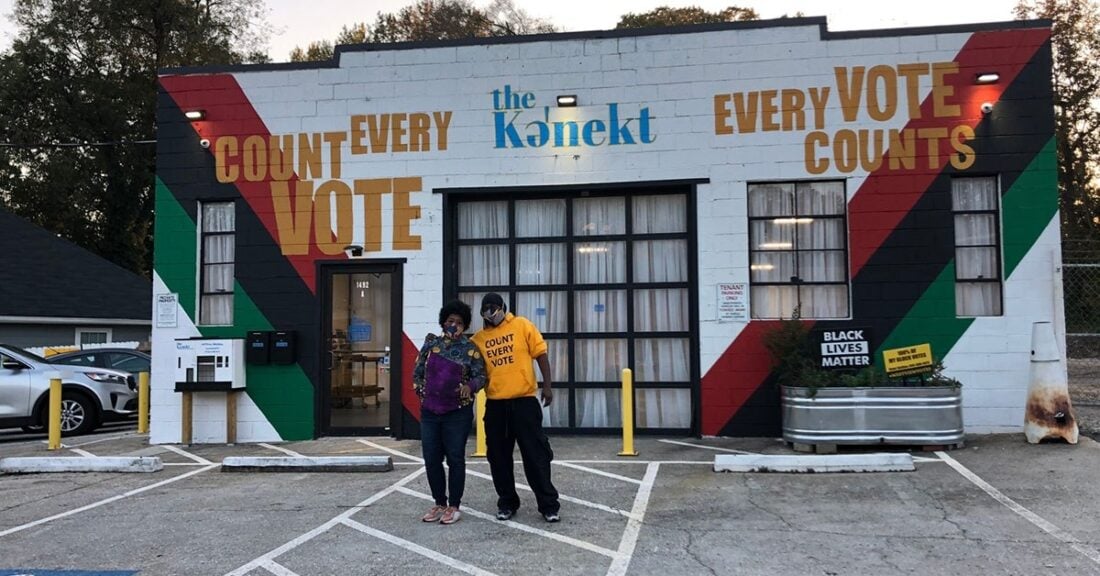Ke’Nekt Cooperative Backs Atlanta’s Black Businesses

Ke’Nekt Cooperative ― a retail incubator — connects and supports southwest Atlanta’s Black business community. The cooperative helps these businesses and their community partners give back to the neighborhood. With funding from the Annie E. Casey Foundation, Ke’Nekt’s targeted financial and technical assistance to aid Black-owned businesses experiencing hard times and encourages civic engagement among those who live and work in the area.
Creating the Cooperative
Ke’Nekt Cooperative co-founder Kiyomi Rollins describes creating the organization as her personal “superhero origin story.” In 2019, Rollins and Ke’Nekt co-founder Mark Eschoe were managing a natural hair and skin care shop in Atlanta’s Westview neighborhood.
“What we found was that Black-owned, small businesses like ours were routinely excluded from important conversations about development and gentrification that were happening in our own backyard,” says Rollins. “On top of that, many of the longstanding, brick-and-mortar businesses in our neighborhood were closing or finding themselves at risk for eviction or displacement.” The duo decided it was time to act to reverse these trends. After acquiring a long-term land lease, they put their existing business on hold and launched Ke’Nekt.
Keeping Businesses Afloat During Tough Times
Thanks to a $25,000 grant from the Casey Foundation, Ke’Nekt aided 10 local businesses in its first year. This funding proved critical when the COVID-19 pandemic began, harming the stability of small businesses across the United States. According to Ke’Nekt, 90% of these businesses remained open throughout the pandemic and are still in operation today.
Rollins notes that Ke’Nekt began by focusing on helping longstanding businesses launch digital storefronts and services. The organization also provided its first cohort of business owners:
- laptop computers;
- assistance with online applications for business loans and financial aid; and
- resources to foster a better understanding of financial planning.
To help address the root causes of gentrification and displacement, Rollins and Eschoe worked with community members to encourage more engagement in local elections and greater participation in how the community uses its public budget. This enabled residents to have a larger role in important conversations that affect their lives and livelihoods. Among the community aid events Ke’Nekt has held during the pandemic, one food giveaway served more than 850 area families.
Looking to the Future
For Ke’Nekt’s second cohort, the incubator will support 20 businesses with funding from a $40,000 grant from the Casey Foundation.
“The Ke’Nekt Cooperative has been a valuable partner in the Foundation’s work supporting young people and families in southwest Atlanta,” says Ade Oguntoye, a senior associate with Casey’s Atlanta Civic Site. “It is not only committed to the success of Black small business owners in its community but the overall economic health of the community itself.”
The Cooperative expects to finally open the doors to its physical offices and provide in-person support to business owners in southwest Atlanta soon. Looking further ahead, Rollins hopes to create a model that can be expanded to other communities where businesses have as a result of inequity, displacement and the COVID-19 pandemic.
Learn More About How Casey Supports Black-owned Businesses in Atlanta





